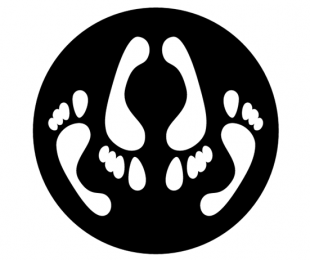what is prostitution?
12-06-2012 - Posted by Andre PietAt the top of the list of “the works of the flesh” Paul mentions “prostitution” (Gal.5:19; see also: 1Cor.6:10; Eph.5:3; Col.3:5). What does he mean by this word? One might think that only “prostitution”, i.e., paid sex was meant. And indeed, the Greek word “porneia” (from which we, of course, recognize the word porn) is indeed derived from a verb “to pay”. So we read of the so-called “lost son” that he spent his possessions with prostitutes (Luke 15:30), i.e., He apparently paid the ladies for their services. Although the word “prostitute” in the Bible and in our language has the meaning of a woman who sells her body, it is evident that the meaning of this word has a broader application and includes more. The plural form (“prostitutions”; Mat.15:19; Mar.7:21; 1Cor.7:2) also points in that direction. Paul speaks in 1Cor.5:1 of a man who had an affair with his father’s wife and calls it prostitution. In 1 Corinthians 7, Paul begins by saying that it is good for a man (lit.) “not to touch a woman” (7:1), but …
… because of prostitutions, let each man have a wife for himself and each woman have her own husband. 1Corinthians 7:2
The contrast makes the meaning clear: opposite the prostitutions (plural!) is the position of each having her own husband and his own wife. Whoever joins a prostitute is one body with her (1Cor.6:16), who is not one’s own husband or wife. Paul refers in this connection to Genesis 2:24:
Therefore a man shall forsake his father and his mother and cling to his wife, and THEY two (= a husband and his wife) become one flesh. Genesis 2:24 (see also: 1Cor.6:16)
When Paul, still with a view to the prostitutions (1Cor. 7:2) appeals to the singles, he writes:
… it is ideal for them if ever they should be remaining even as I. Yet if they are not controlling themselves, let them marry, for it is better to marry than to be on fire. 1Corinthians 7:8,9
Although it was ideal for Paul to be single (“not bound to a wife”; 1Cor.7:1), but those who are not able to control themselves he directs them to the alternative of marriage. Here again: either marry or control yourself. All what lies beyond this is called prostitution. To the Thessalonians, Paul writes:
For this is the will of God: your holiness. You are to be abstaining from all prostitution; each of you is to be aware of his own vessel, to be acquiring it in holiness and honor, 1Thessalonians 4:3,4
Opposite prostitution Paul puts sanctification and defines it with acquiring “his vessel.” A vessel is a body, as Paul elsewhere speaks of a “treasure in earthen vessels” (2Cor.4:7). Whoever indulges in prostitution uses a vessel (= a body) that is not his own. Conclusion: what we should understand with respect to prostitution, Paul leaves us no possibility for misunderstanding: it is being one body with someone with whom one does not intend to marry or is not married.

 English Blog
English Blog